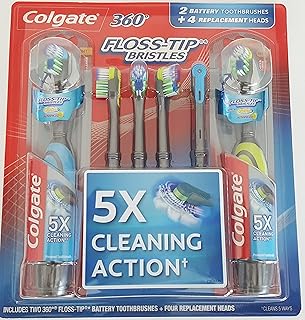Filling Pain: Fix Toothache Fast

The excruciating sensation of a toothache can disrupt even the most mundane daily activities, leaving you desperate for relief. Toothaches are typically a sign of an underlying issue, such as tooth decay, gum disease, or an abscess, and can range from mild discomfort to debilitating pain. Understanding the causes and taking swift action can help alleviate your suffering and prevent further complications.
Identifying the Source of Your Toothache
Before diving into solutions, it’s essential to pinpoint the source of your pain. This can be achieved through a combination of self-examination and professional dental assessment. Common causes include:
- Tooth Decay: Bacterial buildup leading to cavities can expose nerve endings, causing pain.
- Gum Disease: Inflammation of the gums (gingivitis) or infection of the gums and bone (periodontitis) can lead to tooth sensitivity and pain.
- Tooth Abscess: A pocket of pus that forms as a result of a bacterial infection, usually due to untreated tooth decay.
- Dental Work: Sometimes, recent dental procedures, especially if not perfectly sealed or aligned, can cause temporary discomfort.
- Teeth Grinding (Bruxism): Grinding or clenching your teeth can wear them down or chip them, exposing nerves and causing pain.
- Cracked Tooth: A crack in the tooth can allow bacteria to penetrate and irritate the pulp.
Immediate Relief Strategies
While it’s crucial to visit a dentist for a proper diagnosis and treatment, there are several measures you can take to find temporary relief from a toothache:
Over-the-Counter Pain Relievers: Medications like ibuprofen (Advil, Motrin) or acetaminophen (Tylenol) can help manage the pain. However, it’s essential to follow the recommended dosage and consult your dentist before taking any medication, especially if you have any pre-existing medical conditions.
Cold Compress: Applying a cold, damp washcloth to the outside of your cheek near the aching tooth can help reduce pain and swelling.
Salt Water Rinse: Rinsing your mouth with warm salt water several times a day can help reduce swelling and kill bacteria.
Desensitizing Toothpaste: If your toothache is due to sensitivity, switching to a desensitizing toothpaste can help block the dentinal tubules and reduce pain.
Avoid Irritating the Tooth: Try to avoid chewing or biting with the tooth that’s painful. Also, avoid consuming extremely hot or cold foods and drinks.
Long-Term Solutions
While immediate relief is crucial, addressing the underlying cause is paramount for preventing future occurrences and ensuring the health of your teeth and gums. Long-term solutions often involve:
- Professional Dental Cleaning: Regular cleanings can help prevent and treat gum disease.
- Fillings or Crowns: For tooth decay or structural damage, fillings or crowns can protect the tooth and eliminate pain.
- Root Canal: If the pulp of the tooth is infected, a root canal may be necessary to remove the infected tissue.
- Extraction: In severe cases where the tooth is beyond repair, extraction followed by replacement with a dental implant, bridge, or denture may be the only option.
Preventive Measures
Prevention is the best medicine, especially when it comes to toothaches. Regular dental check-ups, a strict oral hygiene routine (brushing at least twice a day and flossing once a day), a balanced diet that limits sugary and acidic foods, and avoiding harmful habits like smoking can significantly reduce your risk of developing toothaches.
Conclusion
A toothache, while disruptive and painful, is a signal that something needs attention. By understanding the potential causes, seeking immediate relief, and addressing the underlying issue with professional dental care, you can not only alleviate your current discomfort but also prevent future toothaches. Remember, your oral health is a critical component of your overall well-being, and proactive care can ensure a lifetime of healthy, pain-free smiles.
How can I tell if my toothache is a dental emergency?
+A toothache can be considered a dental emergency if it’s accompanied by severe pain, swelling, fever, or if you have difficulty swallowing or breathing. In such cases, you should seek immediate dental care.
Can toothaches be prevented?
+Yes, many toothaches can be prevented through regular dental check-ups, good oral hygiene practices, a healthy diet, and avoiding habits that can damage teeth and gums, such as teeth grinding or smoking.
How often should I visit my dentist to prevent toothaches?
+It’s recommended to visit your dentist at least twice a year for routine check-ups and cleanings. However, if you have a history of oral health issues, your dentist may recommend more frequent visits.


